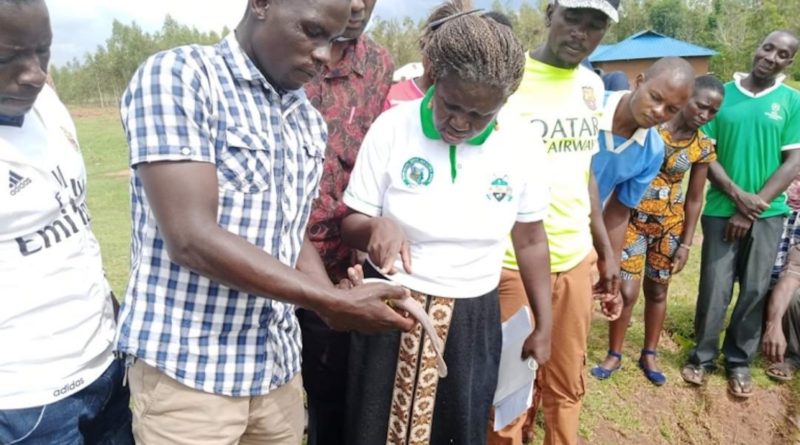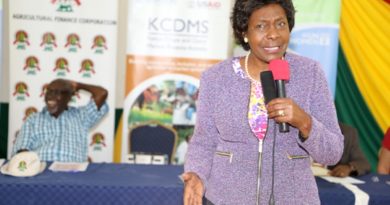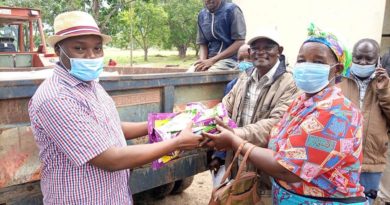The Embodiment of Successful Fish Farming in Siaya County
From siaya.go.ke
Dennis Onyango, a diploma graduate in General Agriculture is today living a life that had only existed in his dreams for a long period of time.
In February 2010, Denis quit his station of employment in Uganda after five years to set up a fish pond in his Central Alego Ward in Siaya County. This initiative was judged as dead on arrival by many of his peers due to the uncertainties that are associated with it locally.
“I only had KShs.10,000 from my savings when I started but I was determined to succeed because I had made my previous employers succeed in the fish industry while working for them previously,” he said when approached for this interview.
Dennis was equally driven by the fact that he is a first born in a family where everyone, including the mother and part of the extended family depends on him for daily bread. He says that this was becoming overwhelming with the KShs.15,000 he was then earning on a monthly basis.
His little savings enabled him purchase 1,000 fingerlings from Tororo, Uganda and after 9 months, the proceeds were not that satisfactory. As a matter of fact, the family ended up feasting on most of them because there was no reliable market.
At this point in time, the 28 year old from Kadenge, Central Alego Ward considered quitting this venture and seeking employment elsewhere but her loving mother encouraged her to try again. His relentless hard work, persistence and support from the County Government of Siaya and partners thereafter has so far earned him seven ponds from which he now makes up to Kshs.400,000 annually from the sale of tilapia at a cost of KShs.300 per kilogram.
As a result of these efforts, Dennis is now a service provider with Agriculture Sector Development Support Program Phase II (ASDSP II), a project within the Department of Agriculture, County Government of Siaya, tasked with mentoring other fish farmers in the County and beyond on acquaculture.
His educational background and long term experience has earned him this accolade where he parts with not less than KShs.35,000 monthly in offering private extension services separately.
He admits that the County Government of Siaya through ASDSP II has exposed him to business planning, proper farm management and fish rearing skills that he’s optimistic will continue uplifting him in his quest for a better life.
Apart from paying school fees and feeding his family, Dennis has now managed to purchase a solar system worth 320 watts, 2 battery systems, a generator and water pump that supplies water from the nearby Lake Kanyaboli to his ponds situated on his ancestral land.
He has since purchased a motorbike that aids his mobility during extension and other activities that would have otherwise eaten up into his pocket.
He hopes to construct a modern hatchery in the coming days so as to enhance his venture as he targets to reap big from the sale of fingerlings. More fingerlings recently injected into his newly constructed ponds by the County Government of Siaya will equally improve the final output that will ensure he remains in the business of satisfying the ready hotel market he has in Nairobi.
Dennis is thankful to the County Government of Siaya for their continuous support in attending to farmer extension needs and provision of fish feeds to farmers that has in recent times boosted farmers’ morale.
Among partners Denis credits for support is Insect Pro Company that has also provided him with ten 50kg bags of black soldier fry larvae meal and even trained him on its rearing. This animal feed can also be used to feed chicken, an option that he’s already exploring with a community group to reduce feeding costs in fish and chicken production.
However the biggest challenge facing Dennis’ plan for expansion is access to finances that will help him set up compost for rearing back solder fly and constructing a modern hatchery.
His advice to the youth is that they should consider changing their attitude towards Agriculture because it has the potential of earning a modest living to the 60% unemployed youth in Siaya.





